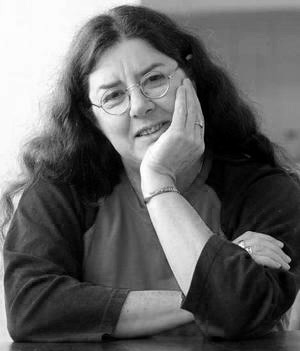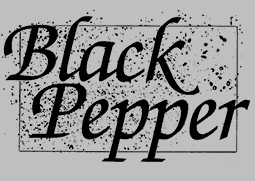|
|

Sandy
Jeffs was born in Ballarat and grew up there in the 1950s and 1960s.
She graduated from La Trobe University in the 1970s and came to terms
with her sexuality as part of an alternative family. She has lived with
schizophrenia for 39 years.
She
has published five volumes of poetry and a memoir. Much of her writing
has been about exploring her madness and its challenges but she has
also set her sights on the mad world, the even madder world of midweek
ladiesí tennis and her family.
Sandy
has been a very public advocate for those living with schizophrenia for
many years presenting a human face for this often misunderstood
condition. She lives with her friends and animals in a place where it
is Christmas every day.
Her
collection The Mad Poetís Tea Party is to be released in 2015 by
Spinifex Press..
2020 Australia Day Honours
MEDAL (OAM) OF THE ORDER OF AUSTRALIA IN THE GENERAL DIVISION
Ms Sandy JEFFS, Christmas Hills VIC 3775
For service to mental health organisations.
SANE Australia
- Peer Ambassador, current.
- Presenter of Mental Health education sessions to school students,Rotary clubs and community groups, since 1979.
Women's Mental Health Network Victoria
- Secretary, 2013-2014.
- Committee of Management Member, 2012-2013.
- Member, since 1988.
- Honorary Life Member, 2018.
Mental Health Advocacy - Other
- Former Board Member, Schizophrenia Association of Victoria (now Wellways).
- Performer, 'Mad Pride', Melbourne International Comedy Festival.
Publications
- Flying with Paper Wings: Reflections on living with madness, 2009.
- Poems from the Madhouse, 1993.
Awards and recognition includes:
- Victorian Honour Roll of Women, 2001.
- SANE Book of the Year Award, for Flying With Paper Wings.
In 1976, I was
diagnosed with schizophrenia, the most
enigmatic and controversial mental illness.
It was tantamount to a death-sentence. There was no presumption of
capacity, no
concept of recovery. It was seen that, with every psychotic episode, I
would go
further into unreachable madness from which I would never recover.
I was 23 and my trajectory was one of a downward spiral: from
studentship, to
dole, to sickness benefits and the final descent to an invalid pension.
I was
on the scrapheap of society, a society that was accustomed to hiding
the mad in
loonybins, places for the unwanted cast-offs, the embarrassments to a
public
that cared only for those who achieved.
It was an ignominious fall from grace as I descended into turbid
madness. Since
then, there have been many meetings with my madness, it's pall hung
over me in
a shroud of discontent and delusional fantasy I was unable to share
with
others.
I am a relic from the old days, the days of long incarcerations in
madhouses
that resembled little villages where one was contained in a
paternalistic world
which revolved around being mad, being medicated and having most of
oneís needs
cared for.
The saying in those days was: never let yourself be put in a loonybin,
youíll
never get out. And it was true. One would be in hospital for months, if
not
years.
I have lived feeling that hope had abandoned me. Where does one find
hope in
the mire of deep distress?
For some, it is seeing the way others deal with their hopelessness. For
others,
it is the simple act of kindness from a nurse in a hospital setting,
the
kindness of a stranger, the kindness of family and friends.
Relapse and hospitalisations can cause hope to haemorrhage. Just
getting out of
bed is an act of hope. How do we hold hope when it so easily falls
though our
hands?
I donít hold hope, I fumble it.
Sometimes, I am able to grasp its powerful force and soften my despair,
but it
ebbs and flows. Holding hope in our hearts helps us to face the world.
Without
hope, we turn away from the world. Perhaps we are here to witness each
otherís
affirmation of hope and, in doing so, reflect on our own strategy to
kindle it.
Words can barely convey an experience so remote and profoundly personal
as
"madness". Yet, words are powerful tools, and in my writing I seek to
do the impossible; to illuminate for everyone what it means to have
been mad,
to describe those strange and bizarre times when a cruel monster
inveigles
itself into my psyche and I become the morbid dreamer.
I only have words and they have taken me on journeys beyond anything I
have
known and to places I never knew existed. In my poetry, I aim to move
angels to
tears and make a stern God laugh.
I bear witness to my mad comrades and write poems that celebrate our
survival.
Sandy Jeffs has
lived with
schizophrenia and all its moods for over thirty years. She is a SANE
Speaker
and community educator who speaks to schools, universities and
community groups
about what itís like to live with a mental illness. She has been
published
widely and is a prize-winning poet.
|


